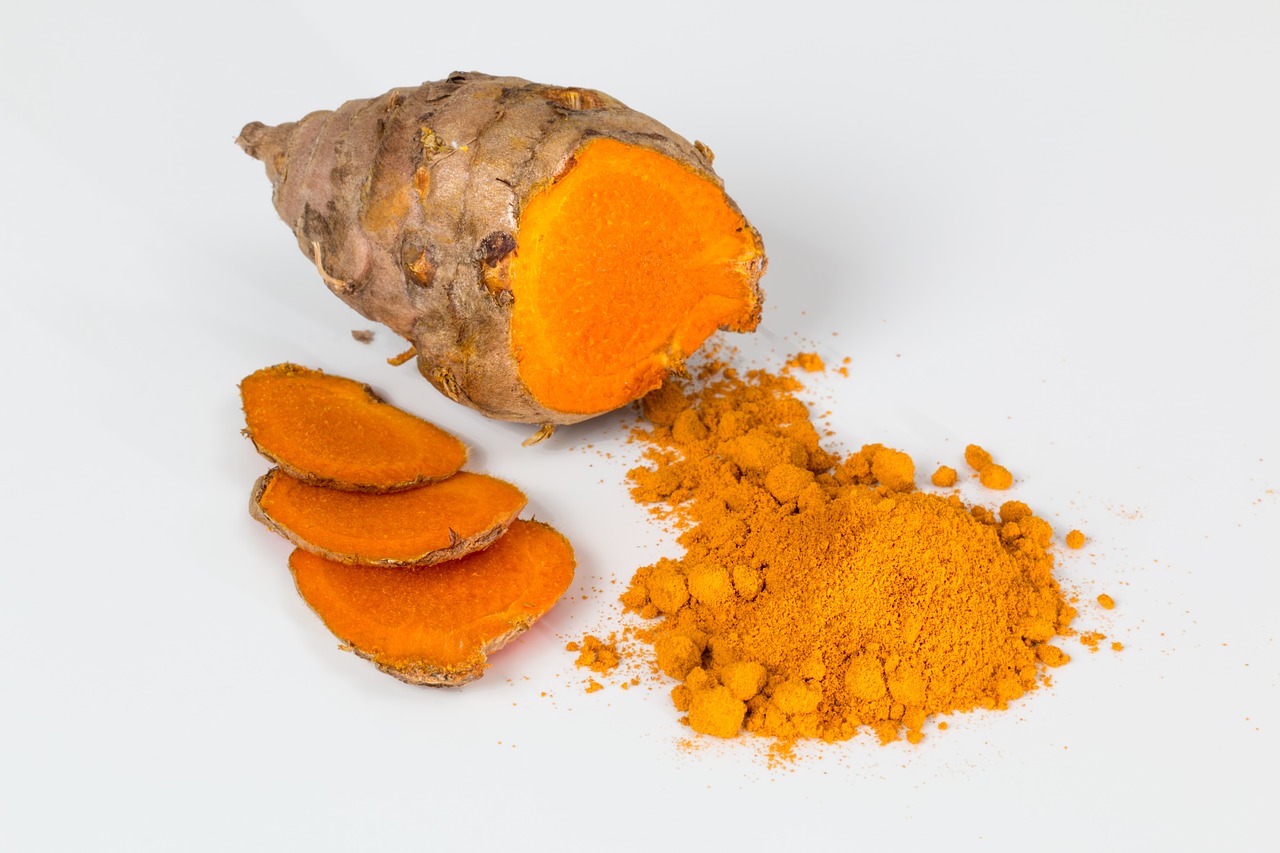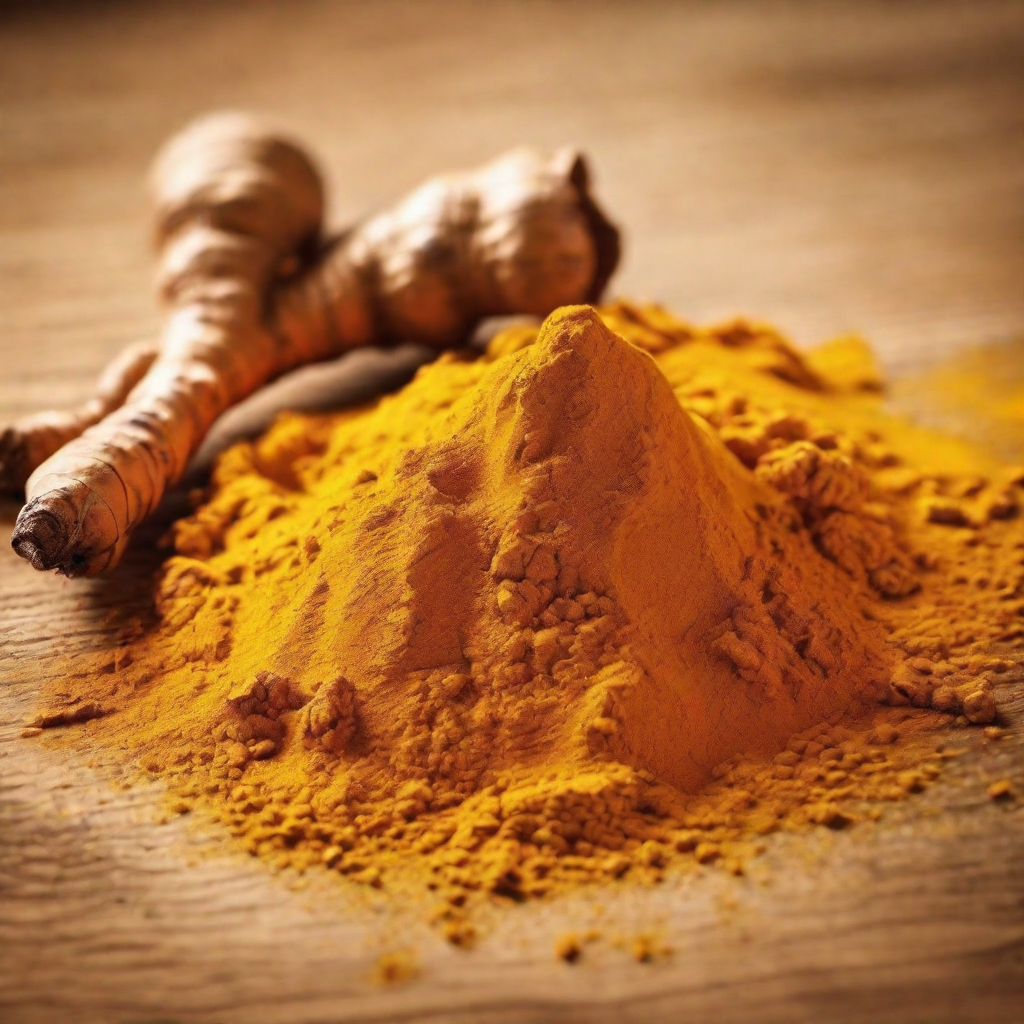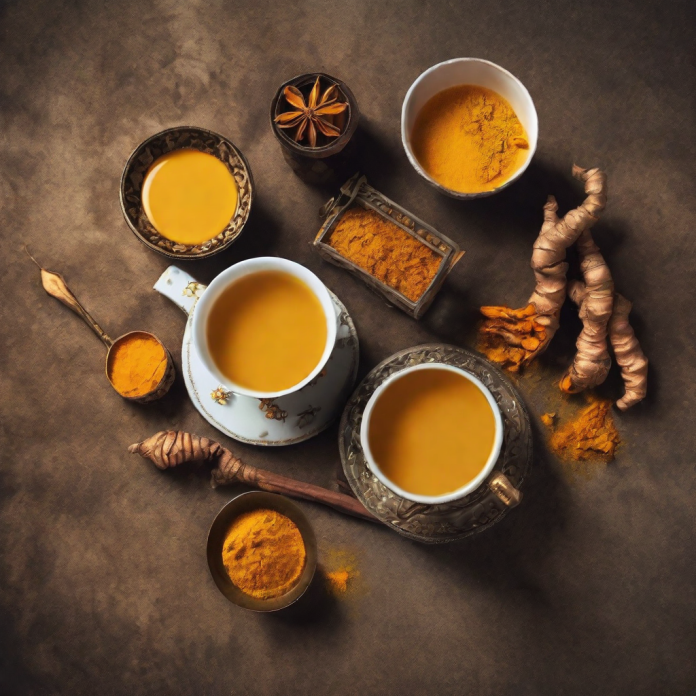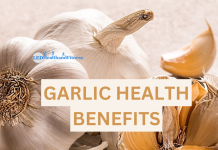Turmeric Turmeric curcumin superfood is a vibrant yellow spice commonly used in Indian cuisine, and it has been treasured for its medicinal properties for centuries. The active compound responsible for many of its health benefits is curcumin. Turmeric curcumin superfood is used in many weight loss products and medicines due to its high antioxidant properties. Here are some notable health benefits associated with turmeric:
20 health benefits of Turmeric Curcumin superfood
- Powerful Anti-Inflammatory Properties: Curcumin, the main active ingredient in turmeric, has potent anti-inflammatory effects. It can help the body fight inflammation at the molecular level, making it beneficial for conditions related to chronic inflammation, such as arthritis.
- Antioxidant Boost: Turmeric is rich in antioxidants that neutralize free radicals in the body. This helps protect cells from damage, reduce oxidative stress, and may contribute to overall cellular health.
- Joint Health and Arthritis Relief: The anti-inflammatory properties of turmeric may provide relief for individuals with joint pain and arthritis. It can help reduce swelling, stiffness, and discomfort associated with these conditions.
- Heart Health Support: Turmeric curcumin superfood may contribute to heart health by improving the function of the endothelium, the lining of the blood vessels. It may also help regulate blood pressure and reduce the risk of blood clot formation.
- Potential Cancer Prevention: Some studies suggest that turmeric and curcumin may have anti-cancer properties. They may help prevent and treat cancer by inhibiting the growth of cancer cells and reducing the spread of tumors. Turmeric curcumin also helps by causing the cancerous cells to commit suicide
- Digestive Aid: Turmeric can promote healthy digestion by stimulating bile production and reducing symptoms of indigestion. It may also help alleviate symptoms of irritable bowel syndrome (IBS) and other digestive disorders.
- Liver Detoxification: Turmeric supports liver health by enhancing the detoxification process. It may help the liver eliminate toxins and metabolic waste, promoting optimal liver function.


- Type 2 Diabetes Management: Curcumin in turmeric may help regulate blood sugar levels and improve insulin sensitivity, making it potentially beneficial for individuals with type 2 diabetes or those at risk of developing the condition.
- Neuroprotective Effects: Turmeric may have neuroprotective benefits, and studies suggest that it could be valuable in preventing or managing neurodegenerative diseases such as Alzheimer’s and Parkinson’s.
- Anti-Depressant Effects: Some research indicates that curcumin may have antidepressant effects by enhancing levels of brain-derived neurotrophic factor (BDNF), a growth hormone linked to depression.
- Anti-Aging Properties: The antioxidant and anti-inflammatory properties of turmeric contribute to its potential anti-aging effects. It may help protect the skin from damage and reduce the appearance of wrinkles and fine lines.
- Wound Healing: Turmeric has been used topically for wound healing due to its antimicrobial and anti-inflammatory properties. It may aid in the repair and regeneration of damaged skin tissue.
- Improved Skin Conditions: Turmeric’s anti-inflammatory and antioxidant properties make it beneficial for various skin conditions. It may help alleviate symptoms of psoriasis, eczema, and acne. Some people use turmeric topically or in face masks to promote clear and radiant skin.
- Eye Health: Curcumin in turmeric may have benefits for eye health. Some studies suggest that it could help prevent or treat age-related macular degeneration (AMD), a leading cause of vision loss in older adults.
- Aid in Allergy Management: Turmeric’s anti-inflammatory effects may help manage allergic responses. It can reduce inflammation in the respiratory tract, potentially providing relief for individuals with allergies or asthma.
- Enhanced Mood and Stress Relief: Curcumin may have mood-enhancing properties by increasing levels of serotonin and dopamine in the brain. Additionally, its anti-inflammatory effects may contribute to stress reduction.
- Potential Weight Management: Some research suggests that turmeric curcumin superfood may aid in weight management. It may help regulate metabolism and reduce inflammation associated with obesity. In addition to your workouts, turmeric curcumin superfood can be consumed for increased
- Balanced Hormones in Women: Turmeric may help balance hormones in women, particularly in managing symptoms associated with hormonal fluctuations, such as PMS and menopause.
- Support for Inflammatory Bowel Diseases: Individuals with inflammatory bowel diseases (IBD) like Crohn’s disease or ulcerative colitis may find relief from turmeric’s anti-inflammatory properties. It may help reduce symptoms and support overall gut health.
- Joint and Muscle Recovery: Athletes and individuals with active lifestyles may benefit from turmeric’s curcumin superfood anti-inflammatory effects in supporting joint and muscle recovery after exercise.


How to Incorporate Turmeric:
- Golden Milk: Create a soothing beverage known as golden milk by combining turmeric with warm milk and other spices like cinnamon and ginger.
- Curry Dishes: Turmeric is a key ingredient in curry powder. Incorporate it into various curry dishes for both flavor and health benefits.
- Turmeric Tea: Brew a cup of turmeric tea by steeping turmeric in hot water. Add honey or lemon for flavor.
- Smoothies: Add a pinch of turmeric to your morning smoothies for an extra nutritional boost.
- Turmeric Supplements: Consider turmeric supplements, especially if you want to ensure a consistent intake of curcumin. Consult with a healthcare professional for personalized advice.
Turmeric curcumin superfood is generally considered safe when consumed in moderate amounts as part of a balanced diet. However, concentrated curcumin supplements may interact with certain medications, so it’s best to dialogue with your health care professional first.

Tips for Using Turmeric curcumin superfood:
- Combine with Black Pepper: Piperine, a compound in black pepper, enhances the absorption of curcumin in turmeric. Consider adding a pinch of black pepper to dishes or turmeric-containing beverages.
- Turmeric Latte: Enjoy a turmeric latte by combining turmeric with your choice of milk, a dash of black pepper, and sweeteners like honey or maple syrup.
- Turmeric Face Mask: Create a natural face mask using turmeric, honey, and yogurt to soothe the skin, reduce inflammation, and promote a healthy complexion.
- Incorporate in Salad Dressings: Sprinkle turmeric into homemade salad dressings to add both flavor and health benefits to your salads.
- Turmeric Rice: Infuse rice with turmeric for a colorful and nutritious side dish. Simply add turmeric to the rice while cooking.
- Turmeric Supplements: If incorporating turmeric into your diet is challenging, consider turmeric supplements. Choose high-quality supplements with bioavailable forms of curcumin.
- Turmeric Infused Oils: Create turmeric-infused oils for cooking or drizzling over salads. This can be done by combining turmeric with olive oil and allowing it to infuse.
While turmeric curcumin superfood offers numerous health benefits, it’s important to use it in moderation as part of a balanced diet. Consult with a healthcare professional before using turmeric supplements regularly, especially if you have specific health concerns or are taking medications, as high doses may interact with certain medications. Additionally, individuals with gallbladder issues or those prone to kidney stones should exercise caution with turmeric consumption. For more information on Turmeric, you can visit BBC Good Food, which offers the nutritional content along with helpful tips.













